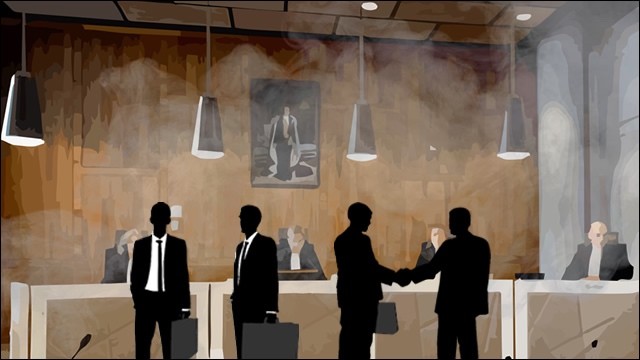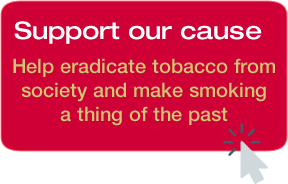Court of appeal rejects charges made against tobacco industry
13 December 2018

The Court of Appeal in The Hague has declined to instruct the Netherlands Public Prosecution Service to bring criminal charges against cigarette manufacturers. The court concluded that it is up to the government, not the judiciary, to tackle the rigging of cigarettes. In other words, it’s the government’s move.
On December 6th, 2018 the Court of Appeal in The Hague delivered its verdict in the proceedings brought by criminal lawyer Bénédicte Ficq on behalf of various individual complainants and a large number of legal entities who previously lodged complaints against cigarette manufacturers. Last February the Public Prosecution Service (OM) decided not to instigate legal proceedings, prompting the complainants to instigate an Article 12 procedure in an effort to force the OM to prosecute.
In its verdict, the court writes that “the products of cigarette manufacturers are made and tested in accordance with stringent Dutch and European legislation and regulations. As long as the cigarette manufacturers respect these European and national rules, the member states (including the Netherlands) must respect these rules and cannot prohibit the sale of cigarettes. Radical measures against cigarette manufacturers can only be taken by the European regulator.”
Dealers with a profit motive
In their reaction, lawyer Bénédicte Ficq and her colleague Marnix van der Werf draw attention to the significance of the court’s comment, in its detailed motivation, that cigarette manufacturers deliberately market a deadly and harmful product with the sole objective of making money.
The court writes: “The fact that smoking is harmful to your health, is a serious health risk, can cause serious illness and even death, and is moreover highly addictive, can in the opinion of the court be considered general knowledge and is not disputed by the defendants. The defendants supply cigarettes that they know are or can be addictive and harmful to the health of active and passive smokers. The court assumes that the defendants act with the aim of making a profit.
“The court respects the wish of the complainants and many others to ban cigarette smoking, especially by young people, and thus to create a smoke-free generation. But despite the major social and general health concerns, the court can assess the complaint on legal grounds only.”
Here the lawyers note the similarities with verdicts reached against cocaine and heroin dealers. Ficq: “The court could have avoided making these remarks, but has instead chosen to make clear that there is a social evil that the court is powerless to address. In other words, the ball is in the government’s court.”
Legislator must intervene
In its conclusion the court expresses it very clearly once again: “Complainants have chosen to address a social problem concerning public health within a criminal framework. However, the court agrees with the Public Prosecution Service that criminal law offers no solution. Radical measures such as banning the production and sale of tobacco, which is produced in accordance with the legal directives, can only be taken by the legislator – after considering all interests. The ultimate goal of the complainants, namely to ban cigarettes and create a smoke-free generation – no matter how socially relevant that aim may be – cannot be achieved through criminal law. It will instead have to involve an appeal to the European legislator.”
Verdict is encouraging
Wanda de Kanter, lung specialist chairwoman of the Youth Smoking Prevention Foundation, who initiated the complaint together with lung patients Anne Marie van Veen and Lia Breed, responded positively despite the rejection. “The court recognizes the scale of the social problem and the fact that cigarettes are extremely addictive and deadly, and should actually be banned, but it’s up to the government to take action. That strengthens us in our demand that the Netherlands Food and Consumer Product Safety Authority and the government must take measures to tackle the phenomenon of ‘rigged cigarettes’. It should not be the case that we have to wait until some point in the 2020s before the European Tobacco Products Directive is amended.
“Anne Marie van Veen and Lia Breed are deeply shaken by this verdict. They feel as if they have ended up in a Kafkaesque situation in which it is patently obvious that cigarettes with holes in their filters release more toxic substances than legally allowed. But the legally prescribed smoking machines measure different levels, so cigarettes in their present form are permitted. Those responsible for passing legislation must now change this situation, especially since we’ve known for the past year that ‘rigged cigarettes’ cause more lung cancer. Time for government action!”
Solemn duty
Secretary Frits van Dam adds: “The Youth Smoking Prevention Foundation will certainly pursue this issue further and will continue to remind politicians and the government of their solemn duty to protect the public from the attacks carried out on the health of the population by cigarette manufacturers.”





 Rookpreventie Jeugd is registered as a Public Benefit Organisation.
Rookpreventie Jeugd is registered as a Public Benefit Organisation.